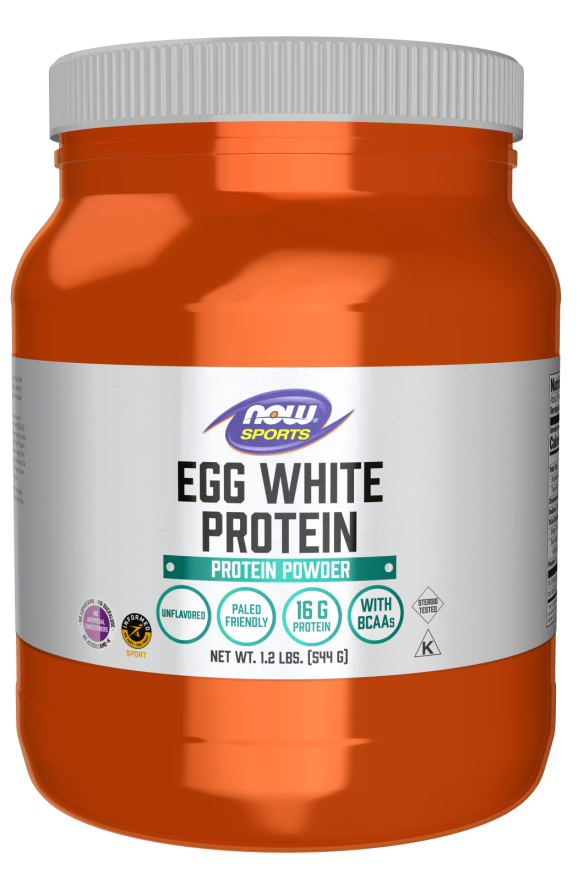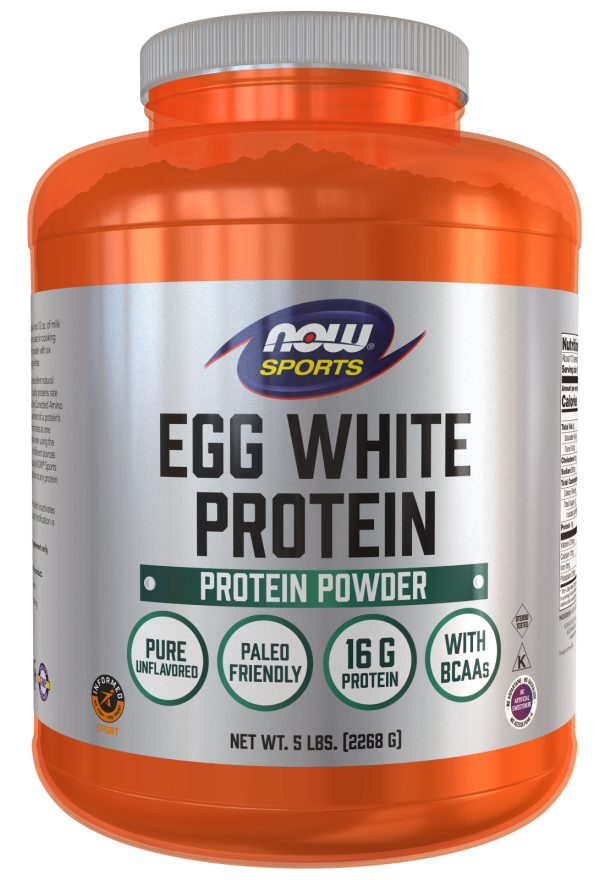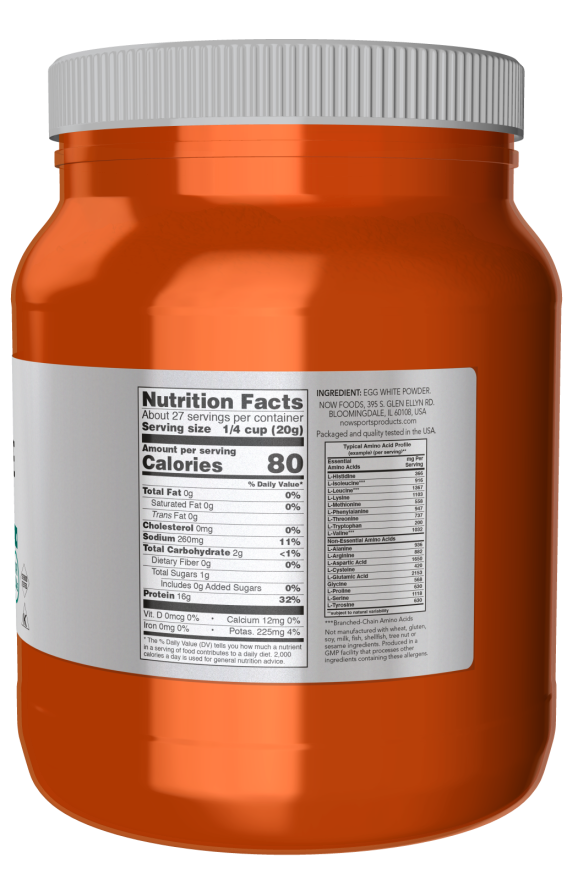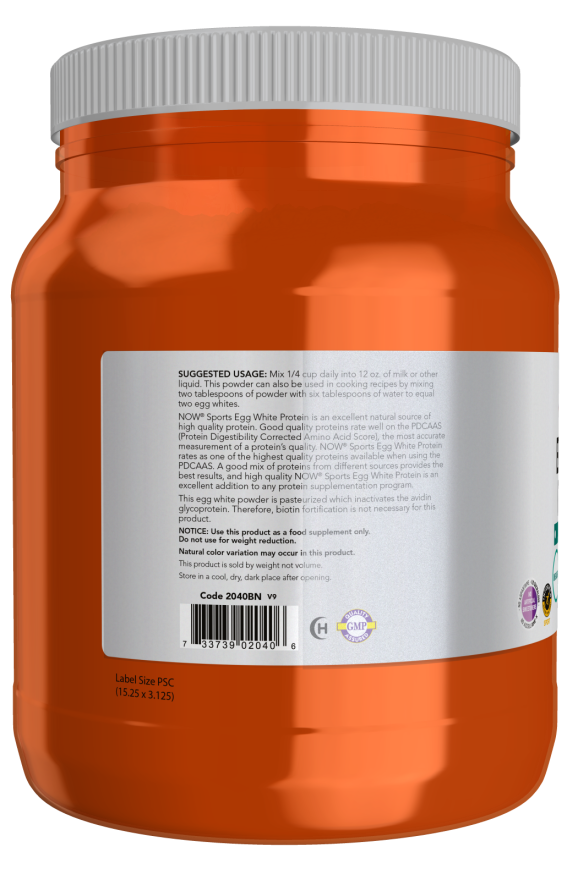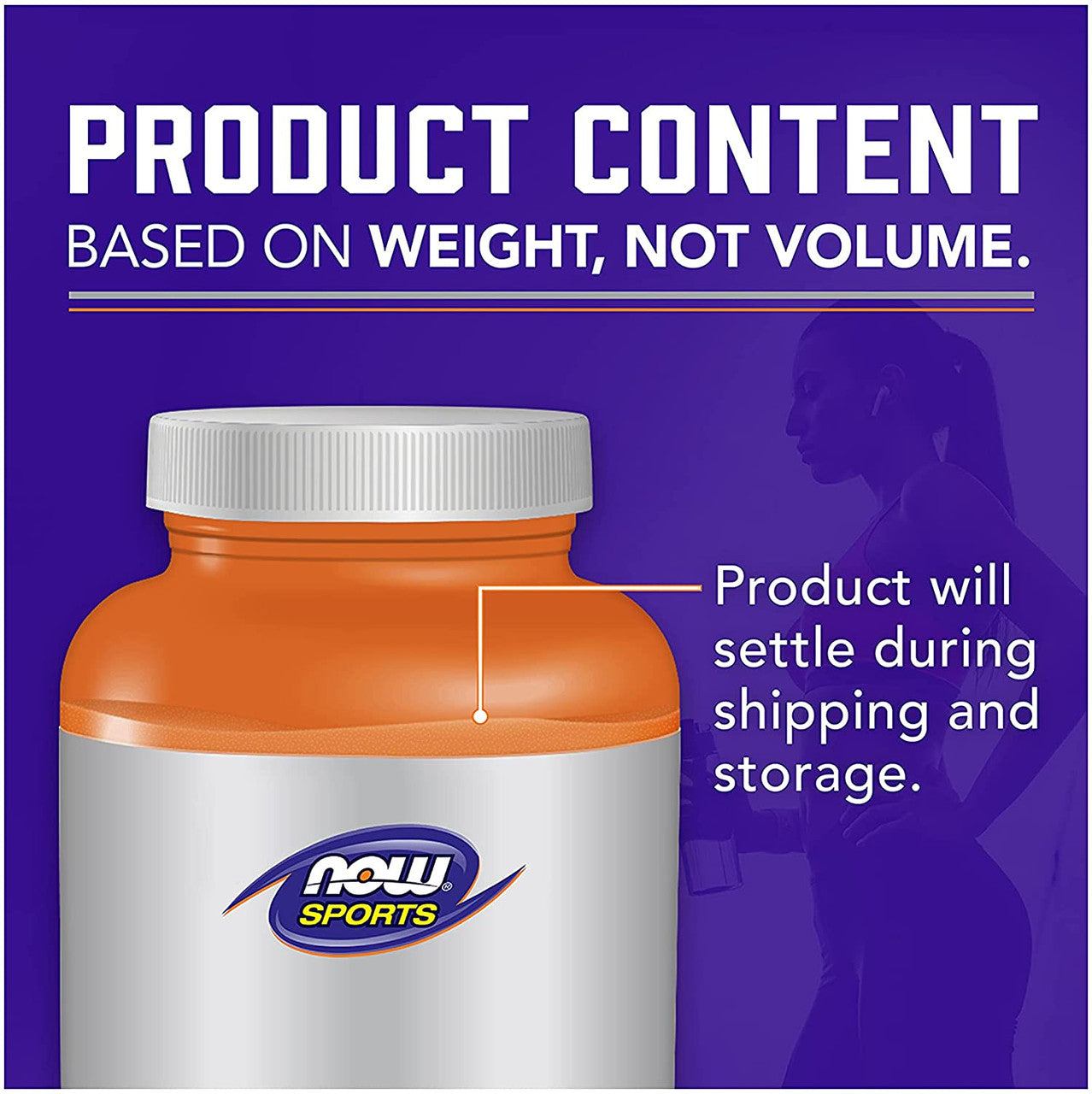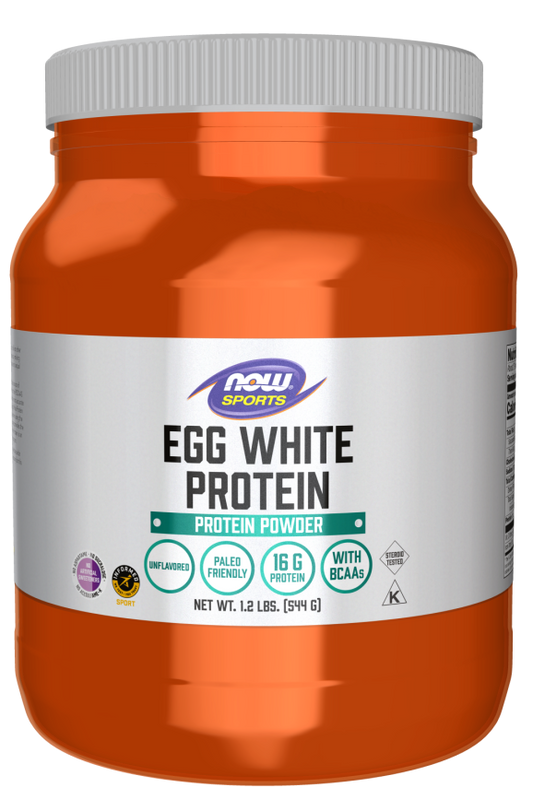1. What is egg protein and what benefits does it provide?
Egg protein is made from the egg white and is therefore fat-free and high in protein. It is considered the most perfect source of protein because it is complete in essential amino acids, branch chain amino acids and glutamic acid. It is completely and easily absorbed by the body. Because of its characteristics, egg protein is used as the standard against which all other proteins are measured.
Benefits Of Egg Protein:
- Highest In The Amino Acids Alanine, Arginine, Glycine And Methine
- Fat-Free
- High Vitamin And Mineral Content
- Naturally Contains Vitamin D
- Contains No Cholestorol
- Vitrually Devoid Of Carbs
- Readily Digested And Absorbed
Before the days of easy, convenient egg protein, bodybuilders and fitness enthusiasts had to hard-boil dozens and dozens of eggs or separate the egg white from the runny yolk! Who wants to do that? Now, anyone can get all their protein needs simply by using a ready-to-go egg protein powder.
2. What does egg protein do and what scientific studies give evidence to support this?
Egg protein is a very efficient, high-quality protein that can be used to build muscle, improve recovery time, and positively affect your overall fitness and bodybuilding goals.
Egg protein has one of the highest P.E.R. (Protein Efficiency Ratio) at 3.8. Protein efficiency ratio (PER) is based on the weight gain of a test subject divided by its intake of a particular food protein during the test period. This is important because the higher the P.E.R. the better the body utilizes the protein.
Egg protein is also a very popular protein due to it's high absorption ration, which is 1.5-3 hours. It absorbs slower than whey, but faster than casein protein, and is high in sulfur-containing amino acids. These amino acids are critical to the body's hormone-producing pathways.
A study was conducted at Ball State University on 17 weight-trained men. The idea of the study was to test the prevention of overtraining when they supplemented daily with an amino acid rich protein powder.
The men were put on a four week "overtraining" program where they did 8-12 rep maxes for three sets, eight exercises for the first two weeks. Then five sets, five exercises for 3-5 rep maxes for the next two weeks. The men were chosen to receive either an egg protein supplement or a placebo for the duration of the four weeks.
Those that were given the protein had measureable positive changes in total testosterone, the ratio of testosterone to the protein that transports it, and hemoglobin compared to those given a placebo. What it showed is that a protein intake of approximately of 0.88 grams per pound of body weight helped to prevent overtraining and proved that adequate protein consumption is essential to making gains!
P.E.R's. (Protein Efficiency Ratios)
- Whey Protein: 3.2
- Whole Egg: 3.8
- Casein: 2.5
- Soy Protein Concentrate: 2.2
-
Beef Protein: 2.9
As you can see, egg protein is by far the most efficent protein on the market today!
3. Who could benefit from taking egg protein and how much should be taken? Are there any side effects or symptoms of deficiency?
Anybody who exercises or lift weights would benefit from taking an egg protein. This is because your body needs to be fed within an hour after working out. It is recommended that you consume 0.5 grams of protein per 1 pound of bodyweight.
Keep in mind that taking an egg protein powder should be in conjunction with a healthy and balanced diet that is also providing your body with essential nutrients and protein.
It is suggested to caclulate roughly how much protein you are already getting from your daily food intake, then supplement the rest with a protein powder. Always follow the recommended serving size for whatever product you are using.
Egg protein should not be used by anyone who has an egg allergy. As with any workout or diet plan, any questions or concerns you have should always be consulted with your doctor or physician prior to using or doing them.
Published with permission, original ©
These statements have not been evaluated by the Food and Drug Administration. This product is not intended to diagnose, treat, cure, or prevent any disease.
